Cystic acne is a skin problem that most people have had to battle with either during puberty, at specific times of the month or at adulthood.
While home remedies can be effective in managing some mild outbreaks, they do little or nothing for the hefty, inflamed, pus-filled cysts associated with cystic acne and sometimes, can even make the inflammations worse.
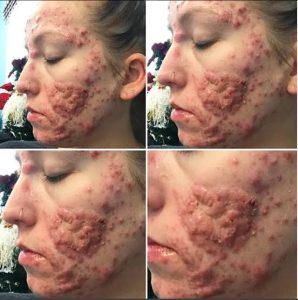
This is why most dermatologists recommend Retin A for people with this severe form of acne.
Retin A
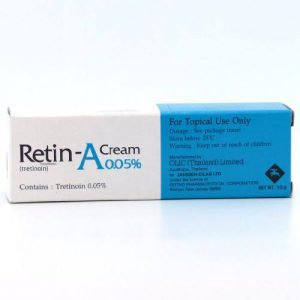
Retin A is a topical cream that belongs to a class of medication called tretinoids which helps to reduce the appearance and intensity of acne, particularly cystic acne.
It is made from tretinoin, a Vitamin A derivative and works by unclogging the pores and speeding up rate of cell turnover.
It also prevents comedones from forming. Comedones are the very beginnings of pimples.
Save for the removal of acne scars (ice pick scars, pitted or raised scars), Retin A helps rid the face of marks, discoloration and acne and can help prevent the appearance of fine lines and wrinkles.
Retin A comes in three concentrations:
0.025% (the mildest one)
0.05% (moderate strength).
0.1% (the stronger one).
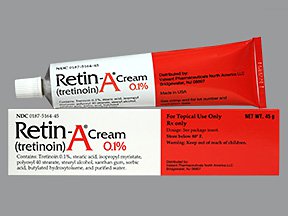
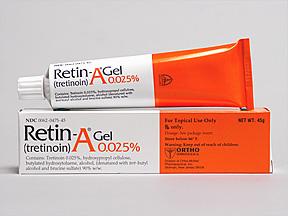
It is advised to use the lowest concentration for some weeks then work your way up to the 0.1%.
READ ALSO: 9 Remedies that Cure Acne in a Week
How to Use Retin A
•Wash your hands thoroughly before washing the affected area with a mild soap and dry well.
•Apply a pea-sized layer once daily (at night) to the affected area.
For some brands and makes, you have to wait 20-30 minutes after cleansing before applying Retin A.
Side Effects
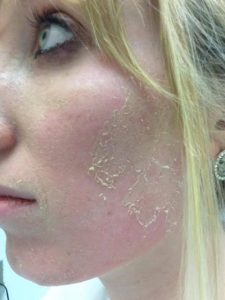
The following are some side effects anyone using Retin A should expect. Occurrence of any of these shows that the cream is functioning optimally.
•Dryness, flaking and peeling
•Stinging sensations.
•Sensitivity to light.
•The skin might actually look worse during the first few weeks of treatment with acne.
How to Counteract Side Effects
•Use only a pea-sized amount.
•Use a good sunscreen to counteract photosensitivity. See Here for some good alternatives.
•A good moisturizer can help with the peeling and flaking (Aloe Vera is a good option).
•Avoid using medicated soaps as this would worsen the stinging sensation.
•Use mild toilet soap.
•Do not scrub the face with loofahs, spinning brushes or sponges.
•Use a gentle exfoliator from time to time.
•Do use Retin A regularly as this would help your skin adjust faster and lead to a reduction in the side effects.
•Do not apply to the eyes, insides of the nose, lips or on burned, broken, wounded or eczema-afflicted skin.
Brands of Retin A
Renova, Retin-A, Retin-A Micro, Refissa.

